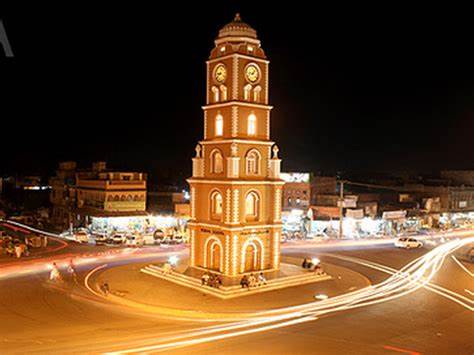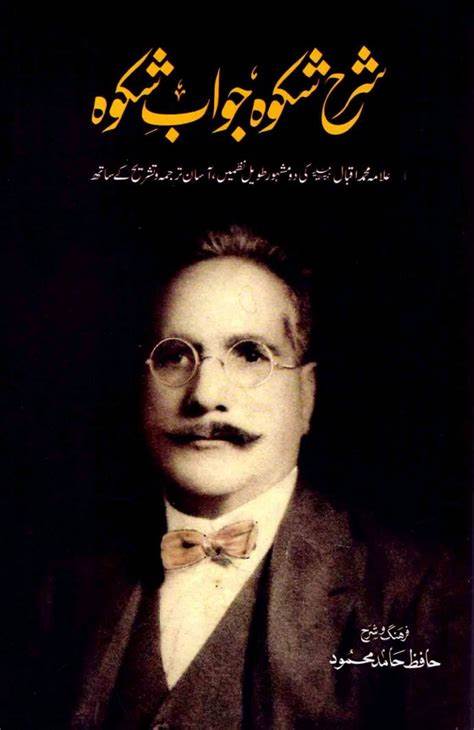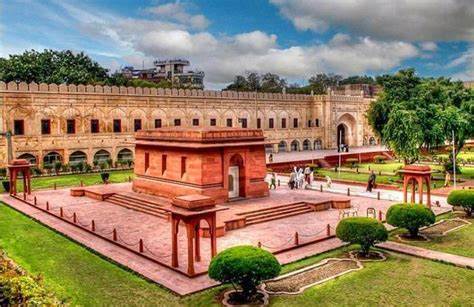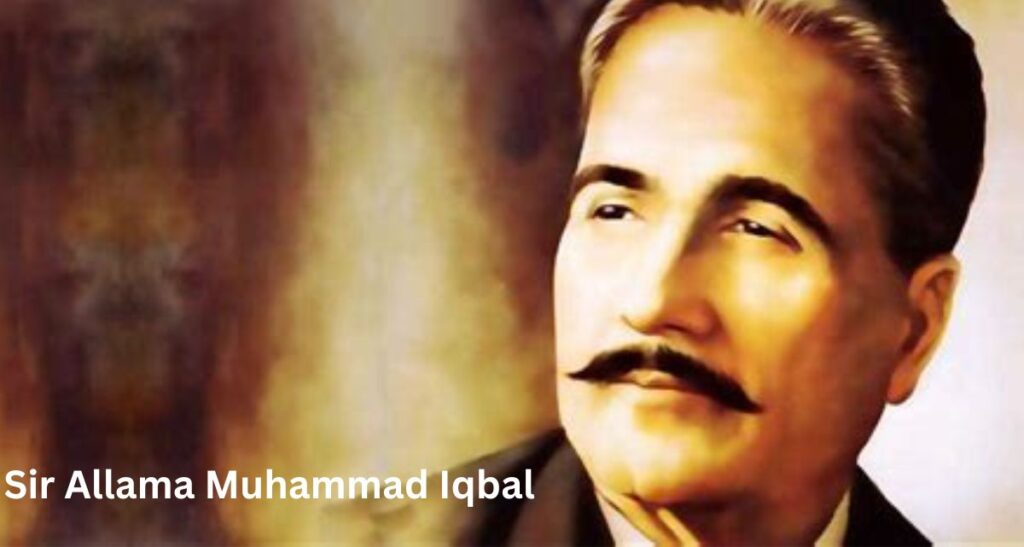Introduction
Allama Muhammad Iqbal (1877–1938), often referred to as the “Poet of the East,” was a visionary poet, philosopher, and political thinker whose work shaped the ideological foundations of Pakistan and inspired millions across the Muslim world. His poetry, written primarily in Urdu and Persian, blended mysticism, nationalism, and a call for spiritual and intellectual revival, earning him titles like *Mufakkir-e-Pakistan* (Thinker of Pakistan) and *Hakeem-ul-Ummat* (Sage of the Ummah). This biography explores Iqbal’s transformative journey from a small-town scholar to a global intellectual, his revolutionary ideas, and his enduring legacy as a beacon of Muslim unity and self-realization.
Early Life and Background

Birth and Family:
Iqbal was born on November 9, 1877, in Sialkot, Punjab, in British India (now Pakistan).
His father, Sheikh Noor Muhammad, was a tailor and devout Muslim known for his piety and love for Sufism. His mother, Imam Bibi, was a wise and religious woman who supported his education.
Iqbal was the second of five siblings, with an elder brother, Ata Muhammad, and three sisters, Fatima, Taleb Bibi, and Karim Bibi. His Kashmiri Brahmin ancestry, converted to Islam generations earlier, added a layer of cultural richness to his identity.
Childhood and Education:
Raised in a modest household, Iqbal displayed early intellectual promise, memorizing the Quran and excelling in Persian and Urdu under local tutors like Syed Mir Hassan, a scholar who introduced him to Islamic literature.
He attended Scotch Mission College in Sialkot, earning a Bachelor of Arts in 1897, and later Government College Lahore, where he studied under Orientalist scholar Thomas Arnold, graduating with a Master’s in Philosophy in 1899.
In 1905, Iqbal traveled to Europe, studying at Trinity College, Cambridge (BA, 1906), and earning a law degree from Lincoln’s Inn, London (1908). He also pursued a PhD in philosophy at Ludwig Maximilian University, Munich, with a thesis on The Development of Metaphysics in Persia (1908).
Formative Influences:
The decline of the Ottoman Empire and British colonialism in India shaped Iqbal’s awareness of Muslim disunity and subjugation.
Sufi poets like Rumi, whom Iqbal considered his spiritual guide, and Western philosophers like Nietzsche, Bergson, and Goethe influenced his thought, blending Eastern mysticism with Western dynamism.
His teacher Syed Mir Hassan instilled a love for Persian poetry, while Thomas Arnold encouraged his engagement with Western philosophy.
Personal Life
Personality Traits:
Iqbal was introspective, visionary, and deeply spiritual, with a restless intellect that sought to reconcile tradition with modernity. His humility contrasted with his bold calls for reform, as he shunned personal fame.
He was known for his wit and conversational charm, yet he grappled with periods of self-doubt about his role as a poet versus a reformer.
Relationships:
Iqbal married three times: Karim Bibi (1895, arranged, later separated), Mukhtar Begum (1910, died 1924), and Sardar Begum (1912), with whom he had lasting companionship. He had five children, including sons Aftab and Javed Iqbal, the latter becoming a notable jurist, and daughters Miraj Begum, Zainab, and Umme Habiba.
His lifelong friendship with Sir Abdul Qadir, editor of Makhzan magazine, provided literary support, while his correspondence with Muhammad Ali Jinnah shaped Pakistan’s ideological framework.
Iqbal maintained a close bond with his son Javed, whose memoirs reveal Iqbal’s affectionate yet disciplined parenting.
Private Struggles:
Financial difficulties plagued Iqbal, especially after returning from Europe, as he struggled to establish a legal practice and relied on teaching and writing.
Chronic health issues, including throat ailments and kidney problems, worsened in his later years, limiting his public engagements.
He faced criticism from orthodox clerics for his progressive views and from secular nationalists for his emphasis on Islamic identity.
Hobbies and Interests:
Iqbal enjoyed reading Persian and Urdu poetry, engaging in philosophical debates, and attending mushairas (poetry recitals).
– He was fond of nature, often drawing inspiration from Kashmir’s landscapes, as seen in poems like Saqi Nama.
His private moments were spent in prayer and reflection, aligning with his Sufi-inspired spirituality.
Social and Cultural Context
Historical Setting:
Iqbal lived during British colonial rule in India, a time of political awakening marked by the Indian National Congress (1885) and the All-India Muslim League (1906).
The decline of Muslim political power post-1857 and the global weakening of Islamic empires fueled Iqbal’s call for revival.
The early 20th century saw rising Hindu-Muslim tensions, shaping Iqbal’s vision for a separate Muslim homeland.
Social Role:
As a Muslim intellectual, Iqbal bridged traditional Islamic scholarship with modern education, appealing to both elites and the masses.
His Kashmiri background and multilingual fluency (Urdu, Persian, Arabic, English) made him a cultural intermediary in a diverse society.
He challenged colonial stereotypes of Muslim backwardness, advocating education and self-reliance.
Public Perception:
During his lifetime, Iqbal was celebrated as a poet and reformer, particularly after his iconic poem Shikwa (1909) electrified Muslim audiences.
Some Indian nationalists criticized his focus on Muslim separatism, while conservative clerics questioned his philosophical interpretations of Islam.
Posthumously, he became a national hero in Pakistan, with his birthday declared a public holiday.
Career and Achievements
Early Career:
Iqbal began as a poet in Sialkot, publishing early Urdu poems in Makhzan under Sir Abdul Qadir’s mentorship.
After returning from Europe in 1908, he taught philosophy at Government College Lahore and practiced law, though his true calling remained poetry and reform.
Major Achievements:
Authored Bang-e-Dra (1924), his first Urdu poetry collection, including Shikwa and Jawab-e-Shikwa, which galvanized Muslim pride.
Published Asrar-e-Khudi (1915, Persian), introducing his philosophy of Khudi (selfhood), earning him a knighthood in 1922.
Wrote Zabur-e-Ajam (1927), Javid Nama (1932), and Bal-e-Jibril (1935), blending mysticism with calls for action.
Delivered the Allahabad Address (1930), proposing a separate Muslim state in northwest India, a cornerstone of the Pakistan Movement.
Published The Reconstruction of Religious Thought in Islam (1930), a series of lectures synthesizing Islamic theology with modern philosophy.
Innovations and Ideas:
Developed the concept of Khudi, emphasizing self-realization and spiritual strength as the path to individual and collective empowerment.
Proposed a dynamic interpretation of Islam, advocating Ijtihad (independent reasoning) to address modern challenges.
Envisioned a Muslim homeland, not as a theocracy but as a laboratory for Islamic principles, influencing the Two-Nation Theory.
Collaborations and Rivalries:
Collaborated with Muhammad Ali Jinnah, inspiring him through letters to lead the Muslim League toward Pakistan’s creation.
Engaged with scholars like Reynold Nicholson, who translated *Asrar-e-Khudi* into English, spreading Iqbal’s ideas globally.
Faced ideological tensions with Indian nationalists like Gandhi and Nehru, who favored a united India.
Impact and Legacy
Immediate Impact:
Iqbal’s poetry and speeches awakened Muslim political consciousness, strengthening the All-India Muslim League and the demand for Pakistan.
His Allahabad Address provided a clear vision for Muslim self-determination, influencing leaders like Jinnah.
His works inspired educational reforms, with institutions like Aligarh Muslim University adopting his call for intellectual revival.
Long-Term Legacy:
Iqbal is revered as Pakistan’s national poet, with his poetry integrated into school curricula and his home in Lahore preserved as a museum.
His philosophy of Khudi continues to inspire self-empowerment movements in Pakistan, Iran, and Central Asia.
The Iqbal Cyber Library and institutions like Iqbal Academy Pakistan preserve his works, with over 100 books and thousands of articles analyzing his thought.
His Persian poetry revived interest in the language, influencing poets in Iran and Afghanistan.
Criticism and Controversies:
Some critics argue Iqbal’s focus on Muslim separatism deepened communal divides in India, though supporters counter that he prioritized Muslim survival in a Hindu-majority context.
His complex philosophy was sometimes misinterpreted as elitist, inaccessible to the masses without scholarly guidance.
Modern debates question whether Iqbal’s vision for Pakistan aligns with its current realities, as noted in analyses by scholars like Javed Majeed.
Modern Relevance:
Iqbal’s poetry, especially Lab Pe Aati Hai Dua (adopted as Pakistan’s national prayer), remains a cultural touchstone, sung in schools and public events.
His ideas on Islamic revival resonate in discussions on modernity and faith, influencing thinkers in Malaysia, Turkey, and beyond.
Documentaries like Iqbal: The Poet Philosopher (2006) and Iqbal’s Concept of Khudi (PTV) explore his life, while his works are widely shared on platforms like Rekhta.org.
Posts on X reflect ongoing admiration, with users quoting lines like “Nations are born in the hearts of poets” to celebrate his role in Pakistan’s creation.
Ideas and Philosophy
Core Beliefs:
Iqbal’s philosophy revolved around Khudi, the cultivation of selfhood to achieve spiritual and worldly greatness, inspired by Rumi and Nietzsche.
He advocated a dynamic Islam, urging Muslims to reinterpret religious principles through Ijtihad to meet modern challenges.
He envisioned a global Muslim brotherhood (Umma) united by shared values, not territorial boundaries.
Key Writings or Speeches:
*Asrar-e-Khudi (Secrets of the Self): A Persian poem articulating the concept of self-realization as a divine spark within humans, urging Muslims to overcome passivity.

Shikwa and Jawab-e-Shikwa: Urdu poems expressing the Muslim community’s grievances to God and God’s response, emphasizing accountability and revival.
The Reconstruction of Religious Thought in Islam : A philosophical treatise proposing a modern Islamic framework, integrating science, reason, and spirituality.
– Famous quote: “Nations are born in the hearts of poets, they prosper and die in the hands of politicians.”
Influence on Others:
Inspired Muhammad Ali Jinnah to articulate the Two-Nation Theory, leading to Pakistan’s creation in 1947.
Influenced global Muslim intellectuals like Ali Shariati in Iran and Muhammad Asad in Pakistan, who echoed Iqbal’s call for Islamic renewal.
His poetry shaped Urdu and Persian literary traditions, inspiring poets like Faiz Ahmed Faiz
Anecdotes and Defining Moments
Pivotal Events:
In 1905, Iqbal’s recitation of Nala-e-Yatim (Lament of the Orphan) at a mushaira in Lahore marked his emergence as a poet of social conscience, earning widespread acclaim.
His 1930 Allahabad Address, delivered at the Muslim League’s annual session, crystallized the idea of a separate Muslim state, a turning point in South Asian history.
Lesser-Known Stories:
While in London, Iqbal was offered a lucrative teaching position but declined, choosing to return to India to serve his community, reflecting his commitment over personal gain.
He once gifted a copy of Asrar-e-Khudi to a young Javed Iqbal, inscribed with advice to “seek your own path,” showing his role as a guiding father.
Quotes:
“The ultimate aim of the ego is not to see something, but to be something.”
“Khudi ko kar buland itna ke har taqdeer se pehle, Khuda bande se khud pooche, bata teri raza kya hai.” (Elevate your selfhood so high that before every decree, God Himself asks, ‘What is your will?’)
Visual and Archival Elements
Photographs and Artifacts :
Black-and-white photographs of Iqbal in his signature cap and coat, often holding a book, are preserved at the Iqbal Museum in Lahore.
Manuscripts of Bang-e-Dra and Javid Nama are housed at Iqbal Academy Pakistan, showcasing his elegant calligraphy.
Letters and Documents :
Iqbal’s letters to Jinnah (1936–1937), urging him to lead the Muslim League, are archived and published as Letters of Iqbal to Jinnah.
His PhD thesis, The Development of Metaphysics in Persia, remains a key academic resource, available digitally via Iqbal Cyber Library.
Timeline:

– 1877: Born in Sialkot.
– 1899: Completes MA in Philosophy at Government College Lahore.
– 1905–1908: Studies in England and Germany.
– 1915: Publishes *Asrar-e-Khudi*.
– 1930: Delivers Allahabad Address.
– 1938: Dies in Lahore on April 21 C
Conclusion
Allama Muhammad Iqbal’s life was a testament to the power of ideas, blending poetic genius with philosophical insight to awaken a nation and inspire a global Muslim renaissance. His concept of *Khudi*, his vision for Pakistan, and his timeless poetry continue to guide individuals and societies toward self-realization and unity. Readers are encouraged to explore Iqbal’s works through Rekhta.org, visit his museum in Lahore, or reflect on his call to “elevate your selfhood.” As Iqbal wrote, “The ultimate aim of the ego is not to see something, but to be something”—a challenge to live purposefully and boldly.
Appendices
Bibliography:
Iqbal, Muhammad. The Reconstruction of Religious Thought in Islam. Stanford, 1930.
LSchimmel, Annemarie. Gabriel’s Wing: A Study into the Religious Ideas of Sir Muhammad Iqbal. Brill, 1963.
Majeed, Javed. Muhammad Iqbal: Islam, Aesthetics and Postcolonialism . Routledge, 2009.
Further Reading:
Iqbal: His Life and Times by Rafiuddin Hashmi. Iqbal Academy Pakistan, 2003.
Documentary: Iqbal: The Poet Philosopher (2006), produced by Pakistan Television.
Website: Iqbal Academy Pakistan (www.iap.gov.pk) for digital archives.
Glossary:
Khudi : Selfhood or self-realization, Iqbal’s core philosophical concept.
Ijtihad : Independent reasoning in Islamic jurisprudence.
Two-Nation Theory: The idea that Muslims and Hindus constitute distinct nations.
Index:
– Allahabad Address, Bang-e-Dra, Khudi, Pakistan Movement, Jinnah.
Sources and Notes
This biography synthesizes information from credible sources, including Encyclopaedia Britannica, Iqbal Academy Pakistan, Rekhta.org, and academic papers from JSTOR and Academia.edu. X posts provided contemporary sentiment, often quoting Iqbal’s poetry, but were used cautiously due to their anecdotal nature. Documentaries like Iqbal: The Poet Philosopher and scholarly works by Annemarie Schimmel and Javed Majeed informed the narrative. The biography emphasizes Iqbal’s Islamic context and nuanced political vision, addressing debates about his role in communal divides while highlighting his universal appeal.


